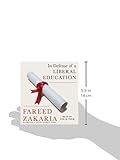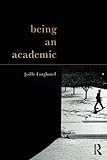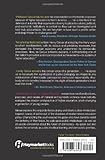“Welcome to the dystopian world of corporate education, in which learning how to think, appropriate public values, and become an engaged critical citizen is viewed as a failure rather than a success.” - Henry A. Giroux
It is by now almost a cliché to underline how the Humanities are suffocating under the weight of a technocratic understanding of education. We are probably somewhat safe to point out that there is a widespread knowledge of the basics of this dynamic: the simple cutting of funds and the abuse of temporary contracts to professors, the compartmentalization of knowledge, a corporate mentality with its plethora of managers running departments under the spell of efficiency and “market-like principles, based on metrics, control, and display of performance.”1 This is not new. Three hundred years ago an undervalued, outcast academic cloistered in the library of the University in Naples wrote a book in defense of the Humanities, which he named La Scienza Nuova, The New Science. The climate of over rationalization dictated by Descartes was Vico’s nightmare, today a different incubus crawls into universities: the pragmatic magnet of usefulness and convenience.
The United States is becoming the forerunner of this complex scheme with countries like Japan making sure to follow the example. Just a few weeks ago Japan’s Prime Minister Shinzo Abe and his government made sure to announce the hedging of funds to Humanities departments in national universities unless they could provide proof of productivity. A government official shamelessly explained that “terminating Humanities programs is indeed one possibility if that doesn’t match people’s contemporary needs.” Abe made sure to explain further, “rather than deepening academic research that is highly theoretical, we will conduct more practical vocational education that better anticipates the needs of society.” Essential here is to note the reference to “needs” and “practical vocation”, but more about this later on. It was not enough for dozens of professors and intellectuals to underline the legacy of places like The University of Tokyo with its two Nobel Prize Laureates for Literature and alumni including Yukio Mishima, Jun'ichirō Tanizaki, Natsume Soseki, and Kenzo Tange: the law is about to go into effect.
Meanwhile, in the West, several scholars and intellectuals have stepped up to defend the study of the Humanities against the rising tide of a technological and scientific approach to learning and have done so from different perspectives, trying to underline the essential teaching that we learn from studying subjects like philosophy, literature, history, the ability to explore the human condition, which serve to open our minds beyond the circumstances of our own experiences. From openly vocal articles such as the terrifying "The Slow Death of the Humanities" by Terry Eagleton, or Marina Warner’s "Learning My Lesson", and Sarah Churchwell’s "Why the Humanities Matter", to the compelling "Breaking the Silence: The Hidden Injuries of Neo-Liberal Academia" by Rosalind Gill; these writers are giving us a compass for the drama taking place in our universities.
Along with these voices there is a new tendency far more dangerous than our current predicament. This is the latest incarnation of the paladins of the liberal arts education. The latest being Fareed Zakaria, writer of the book, In Defense of Liberal Education, and its offspring article, “Why America’s Obsession with STEM Education is Dangerous”, written for the Washington Post. The preoccupation here seems to be a displaced and confused attempt to enforce an implied pragmatism in the act of diving into what others see as a futureless dry field, where students and teachers are imagined as sinking into an endless floating of “unconcrete-ness”: the Humanities and its wasteland. And so it is that the last breath of liberal education should be devoted to help make a buck, spinning the last rants of a neo-convenience that completely defies the very understanding of what a liberal education should be about. But let us go step by step.
As much as we should feel elated that there are voices with important outlets out there ready to “defend” the Humanities—Zakaria does have a successful show on CNN—his reasoning is alarming. He seems to be completely clueless of the fact that his attempt to be a Humanities’ knight is born and feeds itself within a larger corporate understanding of knowledge, the very same understanding of its opponents. He underlines the advancement of “new initiatives from companies, universities, or foundations to expand STEM courses (science, technology, engineering and math) and de-emphasize the humanities” without understanding that his own realization is grounded in the same goal: a limited understanding of the word “success” and the need of hyper productivity to feed the cycle of consuming.
One of the most important forms of education is the one that helps us become free from ourselves, that pushes us to discover that we may be a different person and, by extension, leads us to invent a new way of being in the world. This implies a way of imagining the very act of learning within the Humanities as a first step towards putting distance between us and all those overwhelming narratives of success out there.
Zakaria is quick to point out the classic, if boring, Humanities success stories of Steve Jobs and Mark Zuckerberg. True, on one hand we may be wonderfully inspired by Steve Jobs and his creative understanding of technology anchored in a confused postmodern mix of Zen and good readings. And we are sure that many classics departments rejoice to hear that Mark Zuckerberg has a soft spot for the ancient Greeks. But past these extreme cases of insane global success and opening the debate to the rest of the universe, these narratives of inspiration end up always in the same direction: hyper productivity and a self-centered understanding of the world, a deadly cocktail when it comes to planetary conflicts. This trajectory within the university effectively ends up limiting the potential student engagement with the world as a whole—a world that does not end somewhere on the outskirts of Silicon Valley or, at best, in the neon forest of Tokyo. On the contrary, it extends to areas of the world where that attempt to invent a new way of understanding and engaging with the intricacies of contemporary dramas is not only needed but vital.
This teaching goes well beyond the parade of the useful. As vicars of the Humanities we should never fall into the trap of responding to the demands of the market using the same language, one that embraces and legitimizes its overall agenda. When Zakaria states, “innovation is not simply a technical matter but rather one of understanding how people and societies work, what they need and want” he reduces the debate over the importance of creativity and human understanding to a purely utilitarian one in which the Humanities become the missing piece of the puzzle of the superhuman, masculine, neoliberal entrepreneur.
The needs and wants that Zakaria alludes to in his article never go beyond the enjoyments of super corporative internet companies. “Twenty years ago, tech companies might have survived simply as product manufacturers. Now they have to be on the cutting edge of design, marketing, and social networking. You can make a sneaker equally well in many parts of the world, but you can’t sell it for $300 unless you’ve built a story around it.” These are exactly the convictions and beliefs that a study in the Humanities should teach to recognize as dangerous. These are the legends that need to be unmasked as being not a force of independence, autonomy, and liberation, but a burden that will render us forever enslaved to productivity—as objects of consumption and service, as part of the realm of the useful that will end up impoverishing and subjugating other parts of the world, “the other” we so desperately need to understand and become. And let us not underscore the tasteless metaphor of a shoe that can be done “equally well in many parts of the world”; the endless shame behind that “making” with its underlying reality of exploitation around the world.
As professors within the Humanities we often work with literature, arguably the number one subject that seems to be heading towards the precipice of usefulness, and one of the teachings we most value and try to communicate to our students through reading, discussing, and writing is empathy. Not the empathy that is sensationalized and comprises the witnessing of other people’s stories we come to experience every day from random Facebook videos that simply won’t stop playing as we roll to the next posting, and neither the decontextualized sagas of “the other” designed to make us feel empowered in our pseudo generosity and great sense of pity. Empathy as the force that unlocks the capacity to disengage a mechanism of appropriation and belonging that will rock the very foundation of who we are. The real teaching of empathy is not found in narratives alone, but in words themselves, in the ability to find a sense of rupture by reading, and to fall into the cracks of a desperate desire to understand, which is completely imaginative, yet completely real and fundamentally human.
Later on, to boost the importance of a liberal studies curriculum, Zakaria underlines, “Israel ranks first in the world in venture capital investment as a percentage of GDP; the United States ranks second, and Sweden is sixth, ahead of Great Britain and Germany. All three are open societies, happy to let in the world’s ideas, goods and services.” Drawing a parallel with the University of Tokyo, lately we have been asked to review a booklet that should serve as a guideline for the ethical behavior of researchers within the academia. Interestingly enough the word “scientist” is used to address researchers in general, regardless of their background of study. Moving past this displacing hiccup, later on we find a chapter that points to the idea that integrity should be molded around “the accepted social norms of modern nations.” Yet another fantastic cuddle with the western-centric narratives that Zakaria is fast to adopt. This statement is problematic on many levels. To start with what are "the accepted social norms of modern countries"? And who are these so called "modern countries" that are placed in opposition to others? It is evidently unnecessary here to enter into the stereotypical and in itself discriminatory assertion about "modern countries" which would lead us back into the old Manichean debate of the civilized and the uncivilized. Let us be aware of this obsolete narrative as it crawls into both institutions and the mainstream.
We objectively hit a low point when Zakaria attempts to champion the Humanities by sharing with us the confessions of Jack Ma, a young Chinese male entrepreneur and philanthropist, founder of the giant Alibaba who proclaims the imperfections of a Chinese educational system designed to provide skills but no fun: “Many painters learn by having fun, many works [of art and literature] are the products of having fun. So, our entrepreneurs need to learn how to have fun, too.” In Zakaria’s design, literature and art may bring just what is needed for the completion of a serviceable empowerment of the Humanities, a touch of light enjoyment on our way to amassing improbable fortunes. This is the ultimate credo of the useful. Once again Zakaria is advocating the dangerous idea that the arts are forms of entertainment, and thus, just another byproduct of that convenience that feeds our voracious needs and wants.
The Humanities will at last make it beyond these clumsy attempts to give it a pragmatic spin, too important and too great is the role of the intangible in our human experience to just forget about it and dive into a hybrid, functional relationship of learning. But it is crucial to understand that today the struggle comes not only from the usual suspects, but also from within a distorted perception of the value of the Humanities. As Henri Giroux put it, “at the heart of such a struggle is the need for a new radical imagination—in this case, one that is willing to develop new social movements, a fresh language for politics, an intense struggle to preserve the democratic educational possibilities of higher education, and alternative public spheres. All of which are crucial to sustain a democratic formative culture to challenge the neoliberal authoritarianism that generates massive social inequality, deepens market savagery, promotes massive privatization, and unleashes a global war against any viable notion of social citizenship and critical education.”
Endnotes:
1. Jolle Fanghanel, Being an Academic (New York: Routledge, 2012).
2. Henry Giroux, Neoliberalism's War on Higher Education (Haymarket books, 2014).
Veruska Cantelli received her PhD in Comparative Literature from the Graduate Center of the City University of New York and she is an Assistant Professor in the ALESA program of English department at the University of Tokyo, Japan. Her work focuses on women's autobiographies, particularly on non-western narratives of the self. She studied modern and contemporary dance at the Mary Anthony Dance Studio and the Trisha Brown Studio, and has performed with the Human Kinetics Movement Arts.
Flavio Rizzo has a Ph.D in Comparative Literature from the City University of New York and an Italian Laurea in Cinema Studies from Roma Tre University. He taught Comparative Literature and Film Studies at the City University of New York. He is also a filmmaker. Among other works, he has a documentary on filmmaker Pier Paolo Pasolini (recognized with the Cinema Avvenire Award at the Venice Film Festival) and one on the Coca Wars in Bolivia. He is currently Assistant Professor in the ALESA program of the English Department at the University of Tokyo.



